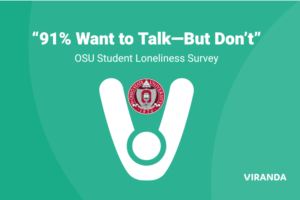Venting is something we all do—whether it’s sharing our frustrations with a friend or airing out grievances after a tough day. But did you know that venting can actually make your friendships stronger? A fascinating new study published in Evolution and Human Behavior by UCLA psychologists sheds light on this surprising benefit of venting.
The research was conducted by a team of psychologists led by Jaimie Arona Krems at UCLA, in collaboration with experts from Oklahoma State University and Hamilton College.
The researchers conducted six experiments involving over 1,700 participants. Participants were asked to listen to a friend vent about another mutual friend, and their reactions were studied to see how venting affected their feelings towards the person venting and the person being vented about.
Main Findings of the Study:
- Venting increases support: When people vent about someone else, the person listening tends to like and support the venting person more than the person being talked about.
- Venting vs. other tactics: Venting is more effective at winning over listeners compared to other methods like directly criticizing someone (derogation).
- Impact on social alliances: Venting can subtly influence the listener’s perception, making them more likely to side with the person venting.
- Venting doesn’t seem aggressive: Unlike direct criticism, venting doesn’t come off as aggressive, which helps the person venting maintain a good relationship with the listener.
- Overall conclusion: Venting can be a powerful social tool to gain favor and strengthen social bonds within a group.
What Makes Venting Successful?
- Non-Aggressive Intent: Venting works best when it doesn’t come across as aggressive. If the listener perceives the person venting as not having harmful intentions toward the person being vented about, the venting is more likely to strengthen bonds.
- Context Matters: The effectiveness of venting depends on the context, such as the topic being vented about and the relationship between the people involved. Venting about issues that are seen as minor or relatable might be more effective than venting about something that could make the listener uncomfortable or defensive.
- Who You Vent To: Choosing the right person to vent to is important. Venting to someone who is more likely to empathize with you, rather than judge you, increases the chances of it being beneficial.
- Venting Can Backfire: If the venting is perceived as overly negative or competitive, it can backfire, making the listener like the venting person less.
The Psychology of Venting
Since the 1950s, the Freudian idea that venting acts as a cathartic release has been widely debated. According to Jaimie Krems, an associate professor of psychology at UCLA and the lead author of the study, while venting often feels good in the moment, its effects on anger can vary. This study explored a new perspective, suggesting that under certain conditions, venting can actually strengthen social bonds by making the listener more supportive of the person venting.
This study highlights the power of venting as a social tool. When done thoughtfully, venting can help you strengthen your relationships and gain more support from your friends. So next time you need to vent, keep these tips in mind to make it a positive and bonding experience!








